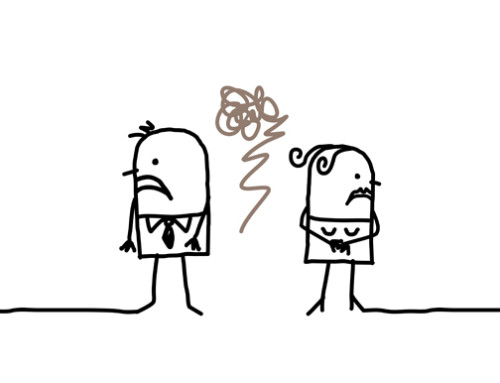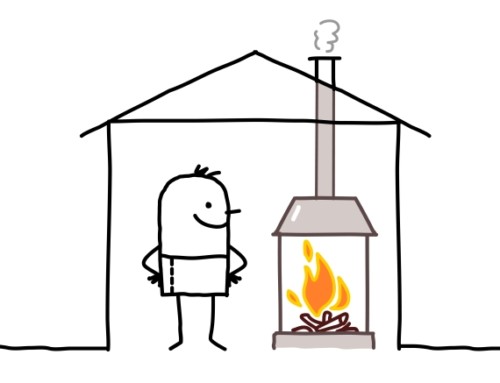In this article, I discuss how you can reap the most benefits from counselling.
In my work with clients as a Calgary psychologist and a Cochrane psychologist, I have been fortunate enough to see many clients I work with make significant progress in addressing their issues. Among those clients who have made the most progress, there are several distinguishing characteristics in terms of their behaviours and attitudes. Noticing these characteristics and their contribution to success in counselling led me to write this article. So without any further ado, here are 10 ways to get the most out of counseling:
1. Know what goals you want to achieve in counseling
Counselling works better if clients have clearly defined goals. If your goals are clearly defined, your therapist is more likely to have strategies to help you achieve your goals. If your goals are vague or undefined, progress is less likely. Try stating your goals in a sentence or phrase such as, “I want to overcome my depression” or “We want to improve communication in our relationship.” A good counsellor will help you define your goals in clear and concise terms. You can help your counsellor help you by having a clear and concise idea of the goals you want to pursue in counselling.
2. Be ready to do some work in sessions and between sessions
Making progress in counselling is no different from making progress in other areas of life such as a job, a sport or other endeavour—consistent work at learning and applying skills leads to progress. Therefore, being ready to become actively involved in doing work in sessions and between sessions will help you make the best progress. Your therapist will work with you to make sure that the kind and amount of work they’ve asked you to do is helpful and within your capabilities.
3. Focus on process goals
Athletes and other performers do their best by focusing on process goals. Process goals are actions you can perform which are within your control and which are most likely to lead to a top performance. Performers who focus instead on results—also known as outcome goals–don’t tend to perform as well because the focus on results detracts from their doing what they need to do to get the job done. Just as in sports, focusing on process goals in counselling leads to the best progress. In other words, you should focus on ‘getting down to business’ by learning and applying the skills which are the process goals your therapist recommends you work on to make progress. Clients who don’t focus on ‘doing the work’ and become preoccupied with discussions of their progress make less progress. This doesn’t mean that you should be unconcerned with results or that you should not monitor your progress with your therapist—just that it should not be done at the expense of focusing on process goals.
4. Focus on what you can do rather than on what others can do to address your issues
Clients who focus on what they can do to address their issues make better progress than clients who focus on what others are doing or what others should be doing. The problem with focusing on others is that, unless the other person is in the counselling room, talking about what they should be doing is unlikely to lead to their making the changes you need them to make to address your issues. So even if the other person is contributing to your problems, focusing on how you can respond to that person will likely be the most effective strategy for relieving your distress. In couples counselling, couples in which each partner considers things they can do differently to improve the relationship make the best progress. Couples in which one or both partners focus on what the other person should do differently are less likely to make progress.
5. Be open to trying new ideas and skills
Einstein’s definition of insanity is doing the same thing over and over and expecting a different result. Clients who make progress in counselling heed Einstein’s advice by being open to trying new ideas and skills they and their therapist suggest to have the best chance of getting a ‘different result.’ Clients who are not open to trying new ideas and skills are less likely to make progress because doing so amounts to ‘doing the same thing over and over’ regarding their issues.
6. Focus on action and problem-solving rather than venting and ruminating
Clients who make the best progress in counselling may talk as much or even more in sessions than those who don’t make as much progress. However, the kind of talk they engage in is focused on taking action, learning skills and problem-solving to address their issues by working collaboratively with their therapists. The kind of talk which is characteristic of clients who make less progress can best be described as ‘venting’ or ruminating. This involves spending a lot of time verbalizing repeated negative thoughts about oneself, another person or the future with little or no focus on taking action to address the issues on which they are ruminating. Although it can be helpful to some degree to express your negative feelings to a supportive listener, particularly if you have not had the opportunity to express your feelings or struggle with doing so, repeatedly expressing the same negative feelings with no movement toward addressing the concerns underlying your feelings is unlikely to lead to lasting improvement and may only serve to make you feel worse.
7. Have realistic and positive expectations for counselling
Your expectations play a critical role in the amount of progress you will make in counselling. Unrealistic or overly negative expectations make it less likely progress will occur. For example, if a client expects that their therapist will ‘cure’ them simply by talking with them and coming to some grand insight without the client having to do work in sessions and between sessions, the client will be disappointed when they discover that this grand insight has either not occurred or has not ‘cured’ them of their problems. Unfortunately, this unrealistic view of counselling which some clients likely garner from inaccurate television and movie portrayals detracts from making progress. At the other extreme, a client who enters counseling with the pessimistic view that no progress is possible because they’ve supposedly tried every approach and “none of them work” will also make little progress because of the influence of their negative expectations on their behaviour. Having realistic and positive expectations regarding counselling leads to the best progress. This involves viewing progress in counselling as similar to progress in most other endeavours. That is, if you are prepared to work with your therapist to learn and apply skills, you are likely to see some progress early on in counselling and will likely see substantial progress over time if you continue to learn and apply these skills. Clients who have these realistic and positive expectations are more likely to be motivated to do the work necessary to make progress and therefore tend to be more successful in addressing their issues.
8. Get specific about your issues
Clients who make the most progress in counseling are open to the strategy of approaching their issues in a specific manner. This involves working with their therapists to identify the individual elements contributing to their distress and then taking action to address these elements. This specific approach typically leads to the best progress in addressing individual issues in which specific strategies like changing thinking and behaviour patterns are employed. The approach also contributes to progress in couples counselling when specific elements of the couple’s relationship friendship and communication patterns used in discussing issues are addressed. Clients who work with their therapists using this specific approach to systematically address their issues tend to make the most progress. Clients who shun the specific approach in favour of a global mindset in which they seek in vain the ‘one key solution’ to their issues are less likely to make progress.
9. Realize that progress does not occur on a ‘straight line’
Clients who make the most progress recognize that, in a graphic sense, improvement does not occur in a straight-line manner. They are accepting of the fact that, despite making progress in addressing their issues, they will sometimes experience bad days or unusually stressful situations in which they may struggle. Clients who make the most progress do not allow these temporary interruptions to progress to get them down on themselves. They instead take the big-picture view by recognizing that a temporary bad stretch does not negate the significant progress they have made. They then focus, often with the help of their therapists, on what they need to do to get back on track to continued progress. Clients who make less progress view these temporary setbacks as indicators that they are ‘back at square one,’ failing to acknowledge how far they have come despite the interruption to their progress. This perfectionistic view of progress makes it very difficult to stay motivated to address your issues. It’s much more conducive to making progress in counselling to think of improvement as you would view the rise in the stock market or housing market over time. That is, in each of these instances there are many ‘dips’ but an overall ‘rise.’
10. Make use of people in your support network
Clients who involve supportive others in their counselling are more likely to make progress than those who attempt to ‘go it alone.’ Although it is still possible to make excellent progress without involving others in addressing your issues, it can be much easier when this support is present. By involving supportive others, I mean primarily that seeking their support and assistance outside of sessions can often be helpful (although in some instances their attendance at sessions may also be beneficial). For example, announcing your goals to people you trust and inviting them to hold you accountable will make it more likely you stay on track in pursuit of your goals. A close friend, family member or relationship partner may also help you make progress by letting you ‘bounce’ ideas off them or assist you in homework assignments such as role-playing situations related to your issues.
How to use the ideas from this article
If you haven’t made as much progress as you would like or expect in counselling, especially if you’ve worked with several therapists, you may benefit from applying one or more of the ideas suggested in this article. It all comes down to the old saying that if you want to be good at something, look at what the successful people are doing and do the same things yourself. This saying holds true for issues which arise in depression counselling, anxiety counselling, anger management counselling, stress counselling, self-esteem counselling, eating disorders counselling, addiction counseling, sports psychology counselling, and couples counselling.
May you get the most out of your counselling,
-Dr. Pat








Leave A Comment